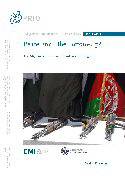Since late 2010 the Afghan government, supported by its international partners, has tried to reintegrate low-level insurgents under the Afghan Peace and Reintegration Program (APRP). Drawing on lessons from previous reintegration efforts and in principle embedded in a wider political strategy that includes talks with insurgent leaders, the APRP aims to entice insurgents away from the battlefield with promises of security, jobs and other incentives – provided they pledge to renounce violence, respect the Afghan constitution and cut ties with al-Qaeda. The program, however, is operating in a hugely challenging context. Progress on high-level dialogue among the parties is fitful at best; the government is perceived as corrupt, weak and illegitimate; there are interests in maintaining the conflict; NATO tactics are heightening tensions; and commitments to withdraw international troops are public knowledge.
As a result of both implementation problems and its political context, the program has shown limited results to date: numbers are low and the role of many of those reintegrated in the insurgency is contested. This paper examines the effectiveness and impact of the APRP, discusses challenges, and concludes with some recommendations. It focuses on overall patterns and trends in two provinces, Helmand and Baghlan. It is based on research including documentary and press sources, and about 65 primary interviews conducted in those two provinces as well as in Kabul, with Afghan and Western officials, insurgent commanders and other Afghans.







